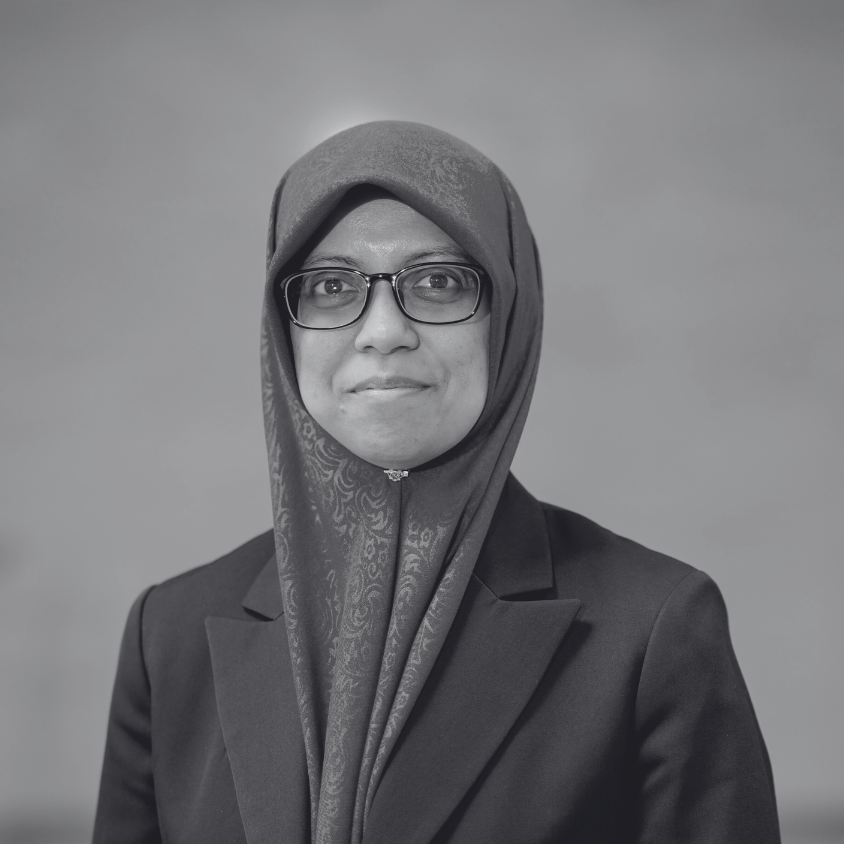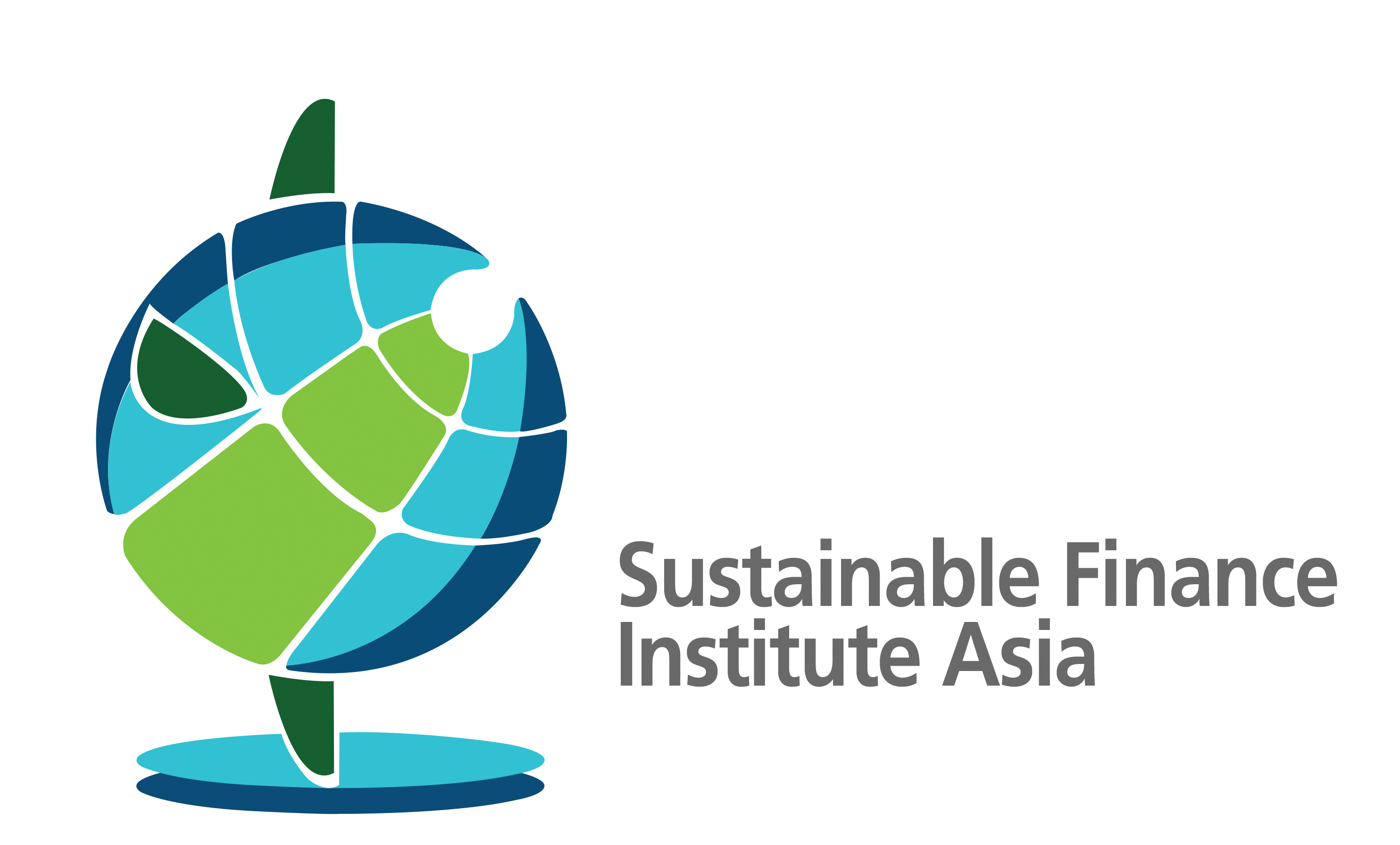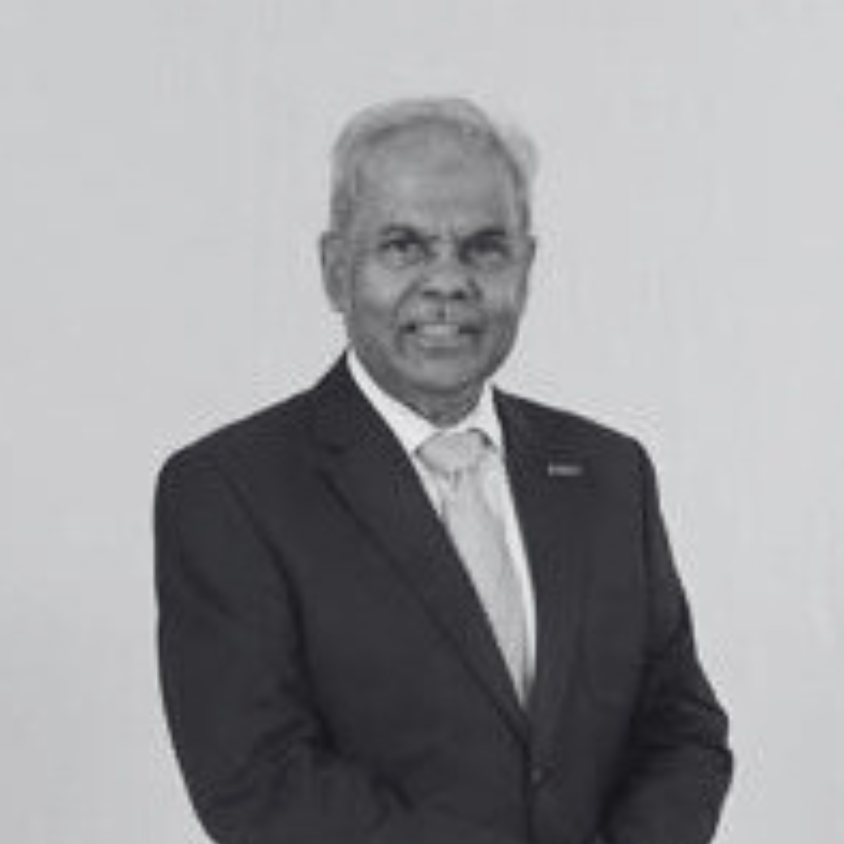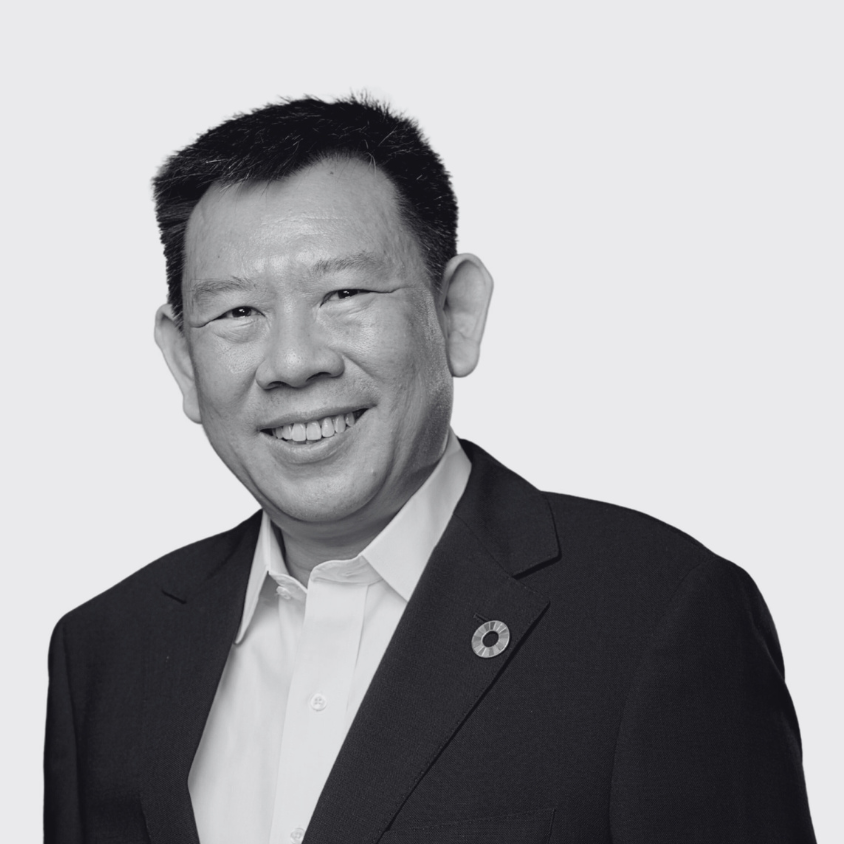

Malaysia
2025
Fostering inclusive and sustainable growth for Asean

July 28, 2025

Securities Commission Malaysia, Bukit Kiara, Kuala Lumpur
Malaysia

Malaysia

July 28, 2025

Securities Commission Malaysia, Bukit Kiara, Kuala Lumpur

SOLD OUT

Register for tickets
Synopsis
As Malaysia takes on the Asean chairmanship in 2025 under the theme of ‘Inclusivity and Sustainability’, it does so amid rising global polarisation – marked by rising trade tensions and deepening political, economic and social divisions that threaten to disrupt global supply chains and strain regional relations.
In this climate, multilateralism has never been more important, and Asean is uniquely positioned to lead in addressing the region’s sustainable development challenges and shaping its role in the global landscape.
The bloc will require US$1.5 trillion in investments by 2030 to support its transition to a net zero economy and sustainable finance will be central to achieving this vision. Asean has made significant strides – from expanding green finance instruments to attract investments, to enhancing regional grid connectivity, mandating sustainability disclosure standards and launching initiatives such as the Asean Common Carbon Framework.
As the region continues to invest in sustainable infrastructure, new economic opportunities are emerging across industries. Robust regulatory frameworks are however required to ensure the long-term wellbeing of communities and the protection of natural ecosystems amid rapid development.
How will Asean strengthen its frameworks to bridge the trillion-dollar finance gap amid global uncertainties?
Meanwhile, Malaysia’s National Energy Transition Roadmap (NETR), alongside the upcoming 13th Malaysia Plan, will further outline an ambitious agenda to accelerate the country’s vision of a low-carbon and resource efficient economy. Amid this evolving landscape, how can policymakers and business leaders best respond to the emerging opportunities?
Join us for Unlocking capital for sustainability 2025 – Malaysia as we convene key decision-makers and stakeholders to explore the solutions needed to implement Asean’s vision for the future.
This event is eligible for HRDC funding. Register your interest to receive detailed instructions on how to process your claim.
Key Speakers
Speakers
YAB Dato' Sri Haji Fadillah bin Haji Yusof
Deputy Prime Minister of Malaysia and Minister of Energy Transition and Water Transformation
Yusof
Speaking on:


Jimmy Tee
Partner for Sustainability and Climate Change and Financial Services Assurance, PwC Malaysia
Tee
Speaking on:


Dr. Dzaeman Dzulkifli
Executive Director, Tropical Rainforest Conservation and Research Centre
Dzulkifli
Speaking on:


Emeera Hashim
Chief Impact Officer, IMPACTO and Lead of DEI Workstream & Secretariat, CEO Action Network
Hashim
Speaking on:


Faroze Nadar
Executive Director, UN Global Compact Network Malaysia & Brunei (UNGCMYB)
Nadar
Speaking on:


Calvin Woo
Director, Malaysia Centre for Fourth Industrial Revolution (MyDIGITAL Corporation)
Woo
Speaking on:


Nosrat Ravichandran
Head – Nature, Climate And Energy, United Nations Development Programme (UNDP) Malaysia, Singapore And Brunei Darussalam
Ravichandran
Speaking on:


Datuk Professor Dr Mohd Faiz Abdullah
Chairman and Chief Executive, Institute of Strategic and International Studies (ISIS) Malaysia
Abdullah
Speaking on:


Dr. Ramy Bulan
Research Fellow and the Director of the Centre for Legal Pluralism and Indigenous Law at the Faculty of Law, University of Malaya
Bulan
Speaking on:


Edward Vrkić
Resident Representative, UNDP Malaysia, Singapore and Brunei Darussalam
Vrkić
Speaking on:


Khairul Ridzwan Abdul Kuddus
General Manager of International Affairs, Securities Commission Malaysia
Kuddus
Speaking on:


Shahira Johan
Senior Financial Sector Specialist, Finance, Competitiveness, and Investment (FCI) Global Practice in East Asia Pacific, World Bank
Johan
Speaking on:


Agenda
9:30
Opening address
9:40
Opening plenary – Transition finance: Rewiring the financial system for greener economies
Despite growing concerns over weakening global financial alliances and the barriers to scaling sustainable finance, financial institutions (FIs) across Southeast Asia have remained steadfast in their commitment to decoupling economic growth from greenhouse gas emissions.
Asean has launched a range of initiatives to accelerate the region’s sustainable finance agenda – from introducing sustainability-linked bond standards to developing domestic and regional taxonomies. Transition finance is also gaining momentum, providing customised funding for businesses in carbon-intensive sectors to shift towards low-carbon operations. In Malaysia alone, FIs have pledged more than RM240 billion to environmental, social and governance (ESG) initiatives through 2027.
These efforts are critical amid a financial landscape shaped by geopolitical fragmentation, ongoing trade tensions and global economic headwinds. Sustainable finance remains a key mechanism for the region to deploy capital into projects that address sustainability risks – the challenge will be aligning financial regulation and monetary policy with long-term sustainable development targets.
This opening plenary will explore specific solutions for the region, with a spotlight on the role of finance for a region in transition, and pathways to greener economies in Asean.
10:45
Welcome remarks
10:55
Keynote by guest-of-honour
11:25
Fireside chat – Geopolitics, fragmentation and sustainable development
11:55
Plenary 2 – Intersecting forces: AI, data and the energy transition
Artificial intelligence (AI) is rapidly emerging as a critical driver for advancing sustainable development. From optimising energy consumption in buildings to processing vast data streams and balancing electricity supply and demand, AI offers a pathway to accelerate the energy transition and building resilient, low-carbon cities.
The AI revolution has however led to a surge in energy demand for data centres across Asia. Electricity demand from data centres in Malaysia alone is projected to reach 20.9 gigawatts by 2040. Johor currently houses 79 per cent of Malaysia’s operational IT capacity, with ongoing regional collaborations such as the Johor-Singapore Special Economic Zone further fuelling growth and underlining the urgency to accelerate the integration of renewables.
How can AI's vast potential for sustainable development be unlocked while mitigating its sustainability footprint? What other technological advancements are on the horizon that will enable the rapid decarbonisation of the Malaysian economy?
This plenary will feature energy experts, regulatory bodies and industry leaders as they examine the impact of AI on our economies and its role in driving sustainability in the region.
Speakers
12:45
Leadership dialogue – Paving the way: the next era of corporate responsibility
14:00
Plenary debate – This house believes that government should take the lead in driving biodiversity financing
The adoption of the Kunming-Montreal Global Biodiversity in 2022 marked a significant milestone, as nations committed to closing the US$700 billion annual global biodiversity funding gap.
Southeast Asia, home to 18 per cent of the world’s terrestrial and marine species, faces acute challenges in allocating funds for biodiversity conservation amid urgent development priorities.
Nature-linked finance has emerged as a key mechanism to bridge this gap, with nature-based solutions and carbon projects presenting significant opportunities to attract private capital, thereby reducing sovereign fiscal pressure through global investment flows.
Questions remain however on whether capital markets are sufficiently mature to support these investments, or should preserving biodiversity predominantly be a government-led responsibility?
This plenary debate will examine whether governments or the private sector should lead efforts to unlock biodiversity and nature-related financing in the region.
Speakers
14:45
Board conversation – Stewardship in a changing world
As global dynamics shift amid rising geopolitical tensions and economic uncertainties, corporate stewardship is encountering some of its toughest challenges yet. Governance structures that once underpinned progress on sustainability goals are now under strain, as companies grapple with market volatility, supply chain disruptions and growing investor scrutiny. Meanwhile, companies worldwide are also facing risks from climate-related litigation, greenwashing accusations and demands for transparency.
The Asean region however remains a bright spot of growth in the global economy, with regional efforts on economic integration, digital transformation and sustainable development providing a fertile landscape for businesses to adapt and thrive.
Amid this complex backdrop, how can boards and management teams strengthen governance frameworks and align business strategies to both mitigate risks and drive innovation?
This dialogue with experienced directors will delve into the role of corporate boards in managing geopolitical uncertainties and capitalising on emerging opportunities in a changing world.
15:15
Presentation – Sustainability reporting in ASEAN: from momentum to alignment
ACCA’s latest report explores Asean’s fast-evolving sustainability reporting landscape, highlighting growing alignment with ISSB standards. It outlines where progress is taking shape, key implementation challenges and the role of accountants in driving change. With insights from across the region, the report offers a forward-looking view of the region’s path toward high-quality, consistent sustainability disclosures.
15:40
Breakout session 1 – Beyond disclosures: navigating the evolution of sustainability reporting
The global sustainability reporting landscape is undergoing rapid transformation, driven by rising pressure from regulators, financial institutions and investors for consistent, transparent and internationally aligned disclosures.
Asean countries are increasingly aligning reporting standards to global frameworks – notably the International Sustainability Standards Board (ISSB) – to strengthen accountability, attract investments and unlock new financing opportunities.
Malaysia is emerging as a regional leader, with the launch of its National Sustainability Reporting Framework (NSRF) through a phased implementation strategy.
Despite this growing momentum, significant gaps remain. Recent reports reveal wide disparities in adoption rates, quality of disclosures and corporate readiness across the region, especially for smaller enterprises.
Will varying corporate readiness hinder the pace of quality sustainability disclosures? How can we prepare companies to meet the expanding scope of disclosures and what are the best tools to support their journeys?
This plenary discussion will convene leading experts to identify the challenges and opportunities in corporate sustainability reporting and how to unlock value for their organisations beyond reporting itself.
15:40
Breakout session 2 – Unlocking the potential of carbon solutions for a net zero economy
Asean’s quest towards a net zero economy by 2050 has spurred a raft of policies in recent years to support the growth of the carbon removal industry. Across the region, Malaysia has enacted the Carbon Capture, Utilisation and Storage Act to govern the CCUS value chain, while Singapore has signed bilateral agreements under Article 6.2 of the Paris Agreement to enable the transfer of internationally transferred mitigation outcomes (ITMOs).
Beyond these initiatives, the broader Asean region is rich in carbon removal opportunities and host some of the world’s largest natural carbon sinks—forests, peatlands, and coastal blue carbon ecosystems—that are critical for nature-based carbon sequestration.
Despite the progress, challenges remain in ensuring that carbon removal solutions are scaled responsibly, protecting ecosystems while fostering market integrity.
In this session, key experts will discuss the technological innovations, policy frameworks and cross-border partnerships required to unlock the region’s vast carbon management potential.
16:30
Closing plenary – Building resilient and adaptive economies for a changing climate
As Southeast Asia grapples with escalating climate risks, the urgency to implement robust climate adaptation and resilience strategies has never been greater. Asean countries have witnessed a 30 per cent increase in annual flood occurrences over the past two decades, alongside extreme weather events that threaten critical infrastructure, disrupt livelihoods and undermine the well-being of millions across the region.
If current trends continue, Asean’s GDP could shrink as much as 11 per cent by the end of the century, impacting vital sectors such as agriculture, fisheries, and tourism that employ over half the region’s workforce.
Beyond economic toll, the climate crisis poses profound challenges for human health. Rising temperatures and shifting rainfall patterns are driving the spread of vector-borne diseases, increasing heat-related illnesses, and intensifying food and water insecurity.
The World Health Organization estimates that climate change is expected to cause approximately 250,000 additional deaths per year globally between 2030 and 2050 from malnutrition, malaria, diarrhoea and heat stress, with a disproportionate impact on vulnerable communities. Asean’s development agenda must therefore focus on strengthening the region’s climate resilience and adaptation – and raise funding for these underfunded areas.
This closing plenary will bring together key stakeholders to determine how embedding climate adaptation into infrastructure development, healthcare systems and financial planning can foster future-ready, resilient economies.
Speakers
17:20
Closing keynote address
Partners
In partnership with
Strategic partner
%20(2).png)
Visit website
AmBank
As one of Malaysia’s leading financial services groups, we have 50 years of expertise supporting Malaysia’s economic development. Our comprehensive services include wholesale banking, business banking, retail banking, and investment banking. Additionally, we offer Islamic banking, stock broking, futures broking, investment advisory, and asset management services. Through this, we cover unit trusts, real estate investment trusts, general insurance, life insurance, and family takaful.
Find out more
Supporting partner

Visit website
Asuene
Asuene is at the forefront of the sustainability movement, providing cutting-edge solutions in carbon accounting, supply chain ESG ratings and decarbonization strategy. With 25,000+ clients across diverse industries, we support businesses in measuring, managing, and reducing their carbon footprint while aligning with global sustainability goals. Our mission is to make sustainability accessible and actionable, ensuring that companies are not just adapting to change but driving it. Take the next step in your sustainability with us.
Find out more

Visit website
Association of Chartered Certified Accountants (ACCA)
We are ACCA (the Association of Chartered Certified Accountants), a globally recognised professional accountancy body providing qualifications and advancing standards in accountancy worldwide. Founded in 1904 to widen access to the accountancy profession, we’ve long championed inclusion and today proudly support a diverse community of over 252,500 members and 526,000 future members in 180 countries.
Find out more
Climate solutions partner

Visit website
Saxon Renewables
Saxon Renewables is a climate action leader dedicated to helping businesses reduce emissions and transition to renewable energy through tailored solutions. Their services include climate transition strategies, decarbonization plans, environmental commodities (carbon credits, RECs), and carbon project development. Trusted by industry leaders, Fortune 500 companies, and global organizations — including RE100 members and CDP participants—their expertise drives measurable progress toward climate goals and a sustainable future.
Find out more
Networking partner

Visit website
Carbon Trust
The Carbon Trust is a global climate consultancy driven by the mission to accelerate the move to a decarbonised future. Climate pioneers for over 20 years, it partners with businesses, governments and financial institutions to drive positive climate action.
View full partner details

Visit website
Batik Boutique
Batik Boutique is a B Corp-certified, SE.AC-accredited social enterprise under KUSKOP, dedicated to sustainability and social impact. We ethically produce authentic Malaysian batik products that empower local artisans and communities, aligning with the UN Sustainable Development Goals (SDGs) and ESG principles. Our mission is to break the poverty cycle in Malaysia through inclusive economic opportunities while preserving cultural heritage. As a trusted partner, we deliver premium, purposeful products for corporate gifting, events, and uniform solutions with measurable social and environmental impact.
View full partner details

Visit website
South Pole
South Pole is the world's leading carbon asset developer and climate consultancy. Since 2006, it has been a trusted advisor to governments, public sector organisations, and businesses on decarbonisation, and has used the power of markets to help channel climate finance to over 850 projects worldwide.
View full partner details

Visit website
TERA
Founded in 2011, TERA is a Solar Engineering, Procurement, Construction, and Commissioning (EPCC) company and a proud subsidiary of BM GreenTech Berhad, a public listed company. TERA offers a comprehensive range of solar energy solutions, including the Corporate Renewable Energy Supply Scheme (CRESS), Self Consumption (SELCO), Battery Energy Storage Systems (BESS), CREAM, Off Grid Systems, Large Scale Solar (LSS) projects, and Operations & Maintenance (O&M) services.
View full partner details
Knowledge / outreach partner

Visit website
ESG Malaysia
ESG Malaysia is the industry body dedicated to championing and leading the development and growth of the ESG services industry in Malaysia, raising awareness and fostering the adoption of ESG practices and carbon emissions, and advocating for sustainability as a whole. The core mission of ESG Malaysia is to empower ESG practitioners and professionals with relevant knowledge and skills to enhance their professionalism.
View full partner details

Visit website
Malaysian Institute of Accountants (MIA)
MIA is a statutory body established under the Accountants Act 1967, with a mandate to regulate and develop the accountancy profession in Malaysia in support of nation building. MIA accords the Chartered Accountant Malaysia or “C.A.(M)” designation. Working closely alongside businesses, MIA connects its membership to a wide range of information and resources, events, professional development and networking opportunities.
View full partner details

Visit website
Asian Institute of Chartered Bankers (AICB)
The Asian Institute of Chartered Bankers (AICB) is Malaysia’s sole professional body for the banking industry, guided by a council comprising representatives from Bank Negara Malaysia, The Association of Banks in Malaysia and the Malaysian Investment Banking Association. With a membership exceeding 37,000, our mission is to enhance banking standards by cultivating professionals with exceptional conduct, knowledge, and competence. As the sole institute in Southeast Asia authorised by the UK’s Chartered Banker Institute, we confer the prestigious Chartered Banker status. Visit www.aicb.org.myto find out more.
View full partner details
.gif)
Visit website
Institute of Corporate Directors Malaysia (ICDM)
The Institute of Corporate Directors Malaysia (ICDM) is a membership-based organisation whose mandate is to professionalise directorship in Malaysia. As the national institute of directors (IoD), ICDM is committed to providing continuous professional development - empowering boards and directors with forward-thinking mindsets, practical knowledge and essential competencies.
View full partner details
.png)
Visit website
The Association of Banks in Malaysia (ABM)
Since 1973, The Association of Banks in Malaysia (ABM) has been fostering a robust and customer-centric banking industry while advancing the interests of its 26 member banks. ABM collaborates with regulators to uphold ethical banking practices, and cultivate a resilient banking environment in Malaysia. In line with evolving industry needs, ABM champions sustainable banking practices, drives digital transformation, strengthens consumer protection measures and promotes inclusion and financial literacy; serving as a vital intermediary between the banking sector and the public.
View full partner details

Visit website
Climate Governance Malaysia
Climate Governance Malaysia is the Malaysian chapter of the World Economic Forum’s Climate Governance Initiative. We are a network of non-executive directors who aim to acquire the practical skills needed as long-term stewards of the business to help steer our companies through an effective climate transition strategy, taking into account the need for financial stability, increased resilience and sustainability. Aside from non-executive directors, other stakeholders are also welcome to join the conversations and events.
View full partner details

Visit website
Global Reporting Initiative (GRI)
The Global Reporting Initiative (GRI) is the independent, international organization that helps businesses and other organizations take responsibility for their impacts, by providing them with the global common language to communicate those impacts.
View full partner details

Visit website
United Nations Development Programme (UNDP)
UNDP is the leading United Nations organization fighting to end the injustice of poverty, inequality, and climate change. Working with our broad network of experts and partners in 170 countries, we help nations to build integrated, lasting solutions for people and planet. Learn more at www.undp.org and https://www.undp.org/malaysia or follow us at @UNDP on our social media accounts.
View full partner details

Visit website
Asia Investor Group on Climate Change (AIGCC)
Asia Investor Group on Climate Change (AIGCC) is an initiative to create awareness and encourage action among Asia’s asset owners and asset managers about the risks and opportunities associated with climate change and low-carbon investing.
View full partner details

Visit website
UN Global Compact Network Malaysia & Brunei
As a special initiative of the UN Secretary-General, the United Nations Global Compact is a call to companies everywhere to align their operations and strategies with ten universal principles in the areas of human rights, labour, environment and anti-corruption, and to take action in support of UN goals. With more than 20,000 companies based in over 160 countries, and more than 60 Global Compact Country Networks, it is the largest corporate sustainability initiative in the world.
View full partner details

Visit website
Sustainable Finance Insitute Asia (SFIA)
The Sustainable Finance Institute Asia (“SFIA”) is an independent institute established to catalyse ideas on sustainable finance at the policy level, as well as propel action in support of those policy ideas in Asia, particularly in ASEAN. SFIA’s goal is to catalyse transformational change and action in sustainable finance, and its strategy is to drive structural change at a regional level by partnering with the ASEAN official sector.
View full partner details


































.png)
.png)
.png)
